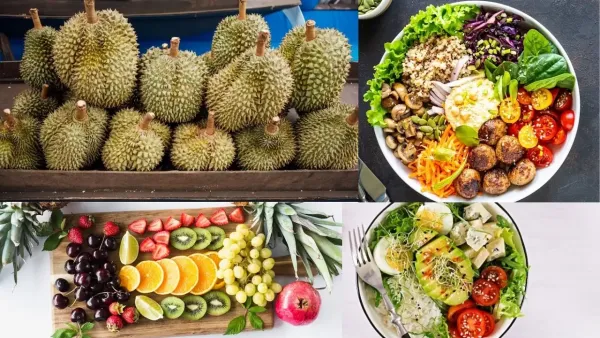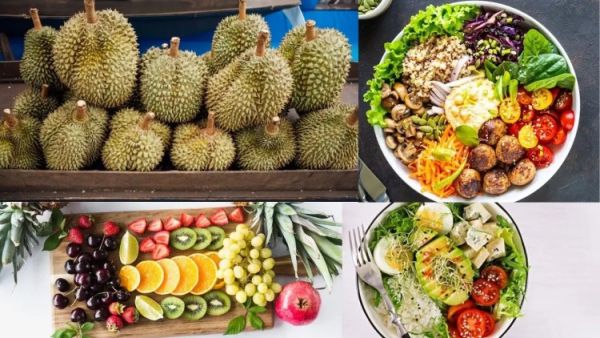
Millions of people have been influenced by the growth of social media, including the recently deceased influencer Zhanna D’Art. Social media material, such as dance reels, amusing jokes, magnificent animations, and more, has increased dramatically. Nonetheless, a captivating topic has risen to prominence in recent years. “Veganism” is what it is.

Spreading the message that animals should not be used to meet human needs is a priority for many animal advocacy groups. On social media, where many people began to be impacted by these activities, this has turned into a revolution. Zhanna D’Art, who died last month, was one of the many influencers who were seen embracing the vegan lifestyle. The Russian raw vegan influencer mostly ate raw vegan cuisine, which included a lot of durian and jackfruit.
Social media platforms saw a massive surge after her demise. Few internet users contended that switching to a vegan diet could never result in death, while others said that it may cause significant trauma since vegan foods lack certain essential components that the human body needs. Social media users are assuming that she died because she ate vegan meals. On the other hand, her Instagram username makes it apparent that she used to eat raw vegan cuisine rather than vegan meals.
That’s the agreement, then! Making a distinction between the phrases “Vegan” and “Raw Vegan” is very necessary.
Dietary Veganism
Eating exclusively “plant-based” foods is known as veganism.
A vegan diet consists of:
Vegetables and fruits
Bread, potatoes, and bice are examples of starchy carbohydrates.
Dairy substitutes with reduced fat and sugar content, including cashew milk and soy milk
Pulses, beans, and other essential proteins
Omega-3 fatty acid-rich nuts and seeds
Small quantities of unsaturated oils and spreads
Nutrients that are hard to get from a vegan diet are found in supplements and fortified foods. It contains calcium, iron, selenium, iodine, vitamin B12, and vitamin D.
When widespread awareness was raised to stop the mistreatment and killing of animals for human benefit, veganism became very popular worldwide. Many of the world’s most famous people are vegans. The list is limitless and includes Bollywood sensation Aamir Khan, Academy Award winner Joaquin Phoenix, and renowned world tennis champion Serena Williams. Maintaining good health and preventing any obstacles to life processes is the main goal of eating. Without a question, adopting a vegan diet may significantly alter your way of life. But the issue of whether it has a beneficial or negative impact emerges.
Benefits of a Vegan Diet for Obesity Berkow SE and Barnard N revealed in the peer-reviewed medical publication, “Nutrition Reviews,” that a vegan diet is very successful for weight reduction based on data from 87 published trials. Additionally, it was shown that a vegan diet required more calories to be burnt than a non-vegetarian one. Additionally, it was shown that vegans consumed less total fat and more potassium, magnesium, thiamin, iron, riboflavin, folate, and vitamins.
Diabetes: Another benefit of a vegan or plant-based diet is that it may help prevent and control diabetes. A low-fat, plant-based diet that includes little to no meat may help prevent and manage diabetes, presumably by increasing insulin sensitivity and lowering insulin resistance. The Adventist Health Studies indicated that vegans had about half the risk of getting diabetes compared to non-vegans.
Heart Disease: In 1998, the journal “Public Health Nutrition” examined and published a joint study that incorporated original data from five prospective trials. It contrasted the mortality rate ratios of plant-based and non-vegetarian diets for ischaemic heart disease. When compared to those following a non-vegetarian diet, it was shown that those following a plant-based diet had a 24% lower mortality risk from ischaemic heart disease.
Mortality: To ascertain the impact of plant-based diets on adult stroke, cardiovascular disease, and overall mortality, the Dietary Guidelines Advisory Committee conducted a review of the literature in 2010. When compared to non-plant-based diets, they discovered that vegan diets were linked to a lower risk of cardiovascular disease and death.
Cons of a Vegan Diet
Iron: While it is true that vegan diets include iron, meat has a higher digestion of iron than plant-based diets. People who follow a vegan diet may have reduced iron reserves. But even among those who eat a plant-based diet, iron-deficiency anaemia is uncommon, according to the American Dietetic Association.
Vitamin B12: Vitamin B12 is essential for blood production and cell development. A severe issue, vitamin B12 deficiency may cause irreparable nerve damage and macrocytic anaemia. It is important to remember that bacteria, not plants or animals, synthesise vitamin B12. Because of this, those who eat a plant-based diet may be at risk for B12 insufficiency. In these situations, patients must consume meals fortified with vitamin B12 or vitamin B12 supplements.
Calcium and Vitamin D: It’s well known that plant-based diets have sufficient amounts of calcium. As a result, those who don’t eat plants may be more susceptible to fractures and poor bone mineralisation. However, research has shown that the risk of fracture was comparable among vegetarians, vegans, and nonvegetarians. Vegans forego foods like paneer, milk, cheese, and yoghurt, which are important sources of calcium.
Vitamin D: Deficiency in vitamin D is often seen in big Cereal grains and soy milk may be enriched to provide a sufficient amount of vitamin D for vegans. Those who are at risk for low bone mineral density and those who have been diagnosed with a vitamin D deficiency are also advised to take supplements.
Vegan Raw
One subgenre of the vegan diet is raw veganism. It prohibits foods derived from animals, much as veganism does. However, an interesting principle in this case is that the food should be consumed entirely raw or heated at a temperature below 104 degrees – 118 degrees Fahrenheit (40 degrees – 80 degrees Celsius). Raw food may be healthier than cooked food, according to some research. Cooking breaks down nutrients and enzymes, changing the food’s structure and, therefore, its digestibility, and producing potentially hazardous byproducts.
What should I eat?
Uncooked fruits
Uncooked veggies
Sprouted grains, such as unhulled farro and quinao that have been soaked and not cooked
Sprouted legumes, such as lentils and pinto bean that sprout in warm water
Raw nuts, which means they were not roasted
Raw seeds, which means they were not roasted
Almond milk made with raw almonds
Raw tofu
Raw Vegan Benefits
Improve Heart Health- A raw vegan diet observed to improve heart health due to its focus on fruits and vegetables – both of which are consistently linked to lower blood pressure and a reduced risk of heart disease and stroke. Studies show that these foods may improve blood cholesterol levels and further lower your risk of heart disease.
Help Weight loss -A raw vegan diet seems very effective at helping people lose weight and keep it off. In fact, studies have consistently linked raw food diets ( including raw veganism) to lower amounts of body fat.
May improve digestion – The high amount of fiber in whole plant foods can improve your digestion. Raw vegan diets are high in both soluble and insoluble fibers. Insoluble fibers add bulk to your stools and help food move more quickly through your gut, reducing the likelihood of constipation.
Raw Vegan Drawbacks
Raw veganism could be nutritionally imbalanced – Vitamin B12 is one example of a nutrient naturally lacking in a raw vegan diet. Getting too little of this vitamin can lead to anemia, nervous system damage, and infertility. While anyone can have low vitamin B12 levels, vegans not taking supplements are at a higher risk of deficiency
Lead to tooth decay – Raw vegan diets may also increase your chances of tooth decay. This may be especially true of diets that include a lot of citrus fruits and berries. These fruits are thought to be more acidic and more likely to cause erosion of your tooth enamel.
A raw vegan diet possesses a number of drawbacks that is alike a vegan diet. Similar to the Russian social media influencer, Zhanna D’Art, there’s another couple in town following the same diet. Simon and Tina have been consuming only fruits for years. The couple states that eating normal food makes them ‘feel high’.
Every individual going on any particular diet must follow the restrictive habits of consuming that food. Getting influenced by a public figure and hoping to receive the same results should never be entertained. It must be taken into consideration that whatever we intake is for our benefit to lead a healthy life and not for some futile experimentation. So, which one do you prefer?